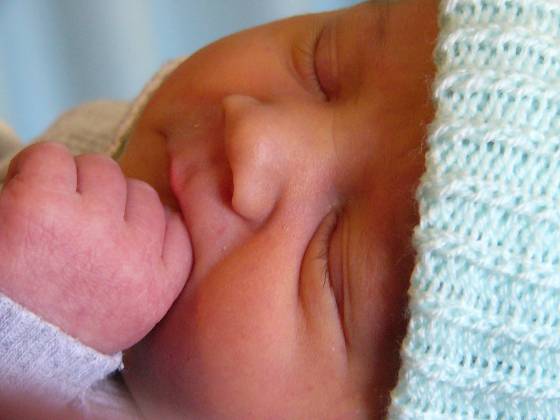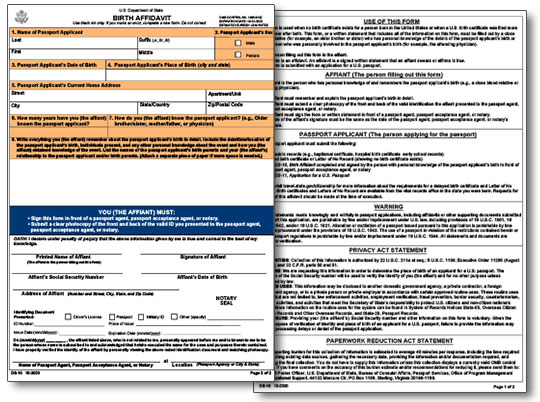

Brian was adopted into his family when he was just two years old. Although he was born in California over two decades ago, his birth records were sealed when his adoption was finalized.
Now, years later, not having access to these vital records is presenting him problems. When he recently applied for a U.S. passport to attend a friend's wedding in the Caribbean, he was denied.
As the federal government gets increasingly more stringent on acceptable state identification cards and driver's licenses with the phased in Real ID Act, it will become even more difficult for him to provide primary evidence of citizenship and identity.
If you share Brian's dilemma, you will want to start the process to get a United States passport, which serves as primary evidence of citizenship, as soon as possible, before the Real ID Act reaches phase four in 2016.
There are many reasons a person may not be in possession of an original birth certificate, or have a birth certificate that does not meet the new standards established April 1, 2011.
One way to establish your citizenship if you have insufficient birth records on which to rely, is to submit a completed Form DS-10: U.S. Department of State Birth Affidavit.

When a certified long-form U.S. birth certificate or other acceptable birth document is not available, a Form DS-10: Birth Affidavit provides a legal statement that bears witness to the circumstances of your birth for the purpose of establishing your identity and U.S. citizenship.
It is filled out and sworn to by an individual personally familiar with the details of your birth, or physically present at the time of your birth.
Form DS-10: Birth Affidavit has eight parts: the name of the applicant whose birth in the United States is to be proved (you), your sex, date of birth, place of birth, your current home address, the number of years the affiant (witness) has known you, the affiant's relationship to you or basis for knowledge of your birth, and the statement of all facts the affiant knows about your birth, including how they know this information and your birth parents' names, if known.
There is a space at the bottom for the affiant to sign after taking an oath under penalty of perjury, and space for the official to notarize the affidavit.
You can download Form DS-10: Birth Affidavit online. The affiant fills out the information and presents the affidavit in person and unsigned to a Passport Agent, Passport Acceptance Agent, or Notary Public who administers an oath to the affiant swearing to the facts of the statement under penalty of perjury.
The affiant then signs the affidavit, and the official agent then notarizes the affidavit. Form DS-10 must be accompanied by a photocopy, front and back, of the affiant's government issued identification such as a driver's license or passport.
The applicant must submit a Letter of No Record from the Office of Vital Statistics in the state where the applicant was born and Early Public Records along with the DS-10 Affidavit, further supporting identity and citizenship.
Early Public Records may include post-natal medical records, school records, either state or federal Census records, Baptismal records with the church's seal, or a certified adoption decree, among others.
These records should include your name, date of birth, place of birth, and be from before age five, if possible.
Birth Affidavits will be carefully screened and verified by the Department of State when used to obtain a United States passport.
This is because a U.S. passport serves as primary proof of U.S. citizenship and identity. You will want to use witnesses that are credible; more weight is given to affidavits filed by an older blood relative like a grandparent, aunt, or uncle, but an attending physician, midwife, or adoptive parent who was present are also good choices.
Remind the witness they are signing the statement under penalty of perjury. If accepted, the Form DS-10: Birth Affidavit will give evidence of both identity and U.S. citizenship for a new passport application in the same way a long-form U.S. birth certificate does.
You will then have to complete the rest of the passport application process including providing a passport photo, a completed Form DS-11 unsigned, and passport application fees of $110, plus $25 execution fees.
Remember, birth affidavits should be kept in a safe place the same as a birth certificate or passport. If you have had to use a Birth Affidavit to obtain a U.S. passport, what is your best advice for those going through the process?
About the Author: For over 20 years, the U.S. Passport Service Guide team has helped hundreds of thousands of travelers with their travel document questions and shared advice about how to make traveling abroad simpler, safer, and more enjoyable.